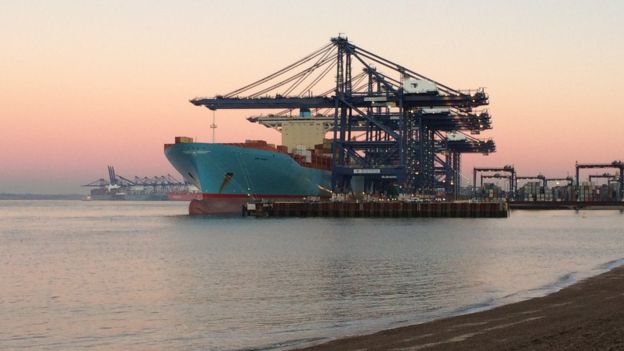By Sisir Devkota*
A visit to the only dry port of Nepal will immediately captivate busy scenes with hundreds of trucks, some railway carriages and huge Maersk containers at play. Trains from the Port of Kolkata in India carry tons of Nepal’s exports every week. Every year, Nepal is fined millions of rupees for overstaying its containers at the designated dock in Haldiya Port of Kolkata. Nepal pays for spaces inside Indian ships to carry out its exports via the sea. This is the closest Nepal has come in exploiting economic opportunities through sea waters. Prime Minister KP Oli went one step further and presented an idea of steering Nepal’s own fleets in the vast international sea space. While his idea of Nepal affording its own ship was mocked; on the contrary, he was right. The idea is practical but herculean.
To start with, Nepal has a landlocked right to use international waters via a third country for economic purposes only. Law of the Sea conferences held during the 80’s, guarantees Nepal’s right to use the exclusive economic zone all around the globe. Article 69 of the Law of the Sea convention states that Nepal could both use sea as a trading route and exploit the exclusive economic zone of its sea facing neighbors. Nepal’s closest neighbor, India has a wide exclusive economic zone which consists of 7500 km long coastline. The article also allows landlocked nations to use docking facilities of the nearest coastal nation to run its fleets. An exclusive economic zone in sea waters is designated after a coastal nation’s eleven mile parallel water boundary ends; which is also a part of the coastal nations territory. Simply put, Nepali fleets can dock at India’s port, sail eleven miles further into international waters-carry out fishing and other activities, sail back to the Indian coast and transfer its catches back to Nepal.
Floating Challenges
Before ships can carry the triangular flag into sea waters, Nepal will need treaties in place to use coastal nation’s water to take off and build shipment facilities. Law of the Sea convention clearly mentions that the right to use another nation’s coast will depend solely on the will of the hosting coastal nation. Does Nepal have the political will to communicate and forge a comprehensive sea transit agreement with its coastal neighbors? Nepal’s chance of securing fleets in and around the Indian Ocean will depend on whether it can convince nations like India of mutual benefits and cancel any apprehension regarding its security that might be compromised via Nepal’s sea activity. The convention itself is one among the most controversial international agreements where deteriorating marine ecosystems, sovereignty issues and maritime crimes are at its core. Majority of global and environmental problems persist in the high seas; ranging from territorial acquisitions to resource drilling offences. Nepal is welcome into the high seas, but does it comprehend the sensitivity that clouts sea horizons? Nepal needs a diplomatic strategy, but lacking experience, Nepal will need to develop institutional capacities to materialize the oceanic dream. Secondly, the cost of operating such a national project will be dreadfully expensive. Does the Nepali treasury boast finances for a leapfrogging adventure?
How is it possible?
The good news is that many landlocked nations operate in international waters. Switzerland, as an example might not assure the Nepali case, but Ethiopia exercising its sea rights via Djibouti’s port could be inspiring. Before Nepal can start ordering its fleets, it will need to design its own political and diplomatic strategy. Nepal’s best rationale would lie in working together with its neighbors. The South Asian network of nations could finally come into use. Along with Nepal, Bhutan is another landlocked nation where possible alliances await. If India’s coasts are unapproachable, Nepal and Bhutan could vie for Bangladeshi coastlines to experience sea trading. Maldivian and Pakistani waters are geographically and economically inaccessible but Sri Lanka lies deep down the South Asian continent. If Nepal and Bhutan can satisfy Sri Lankan interests, the landlocked union could not only skim through thousands of nautical miles around the Bay of Bengal without entering Indian water space; but also neutralize the hegemonic status of India in the region. If such a multinational agreement can be sought; SAARC- the passive regional body will not only gain political prowess but other areas of regional development will also kickstart.
Most importantly, a transit route (such as the Rohanpur-Singhdabad transit route) from Bangladesh to Nepal and Bhutan will need to be constructed well before ships start running in the Indian Ocean. In doing so, Nepal will not only tranquilize Nepal-Bhutan relations but also exercise leadership role in South Asia. A regional agreement will flourish trade but will also make landlocked Nepal’s agenda of sailing through other regions of international sea strong and plausible. A landlocked union with Bhutan will trim the costs than that of which Nepal will be spending alone. Such regional compliance would also encourage international financial institutions to fund Nepal’s sea project. Apart from political leverages, Nepal’s economy would scale new heights with decreasing price of paramount goods and services. Flourishing exports and increased tourism opportunities would be Nepal’s grandiloquence. Nepal’s main challenge lies in assuring its neighbors on how its idea would be mutually beneficial. Nepal’s work starts here. Nepal needs to put together a cunning diplomatic show.
*Sisir Devkota, Global Affairs Analyst based in Kathmandu, Nepal. Founder, Trainer & Researcher at “The Protocol” which facilitates analytical research on current affairs and workshops on Diplomacy and Leadership. Masters of Social Science in Democracy & Global Transformations from the University of Helsinki, Finland. Author for a book chapter titled as “Armed Conflicts in South Asia 2013”.
Source:
This article was published by Modern Diplomacy.

